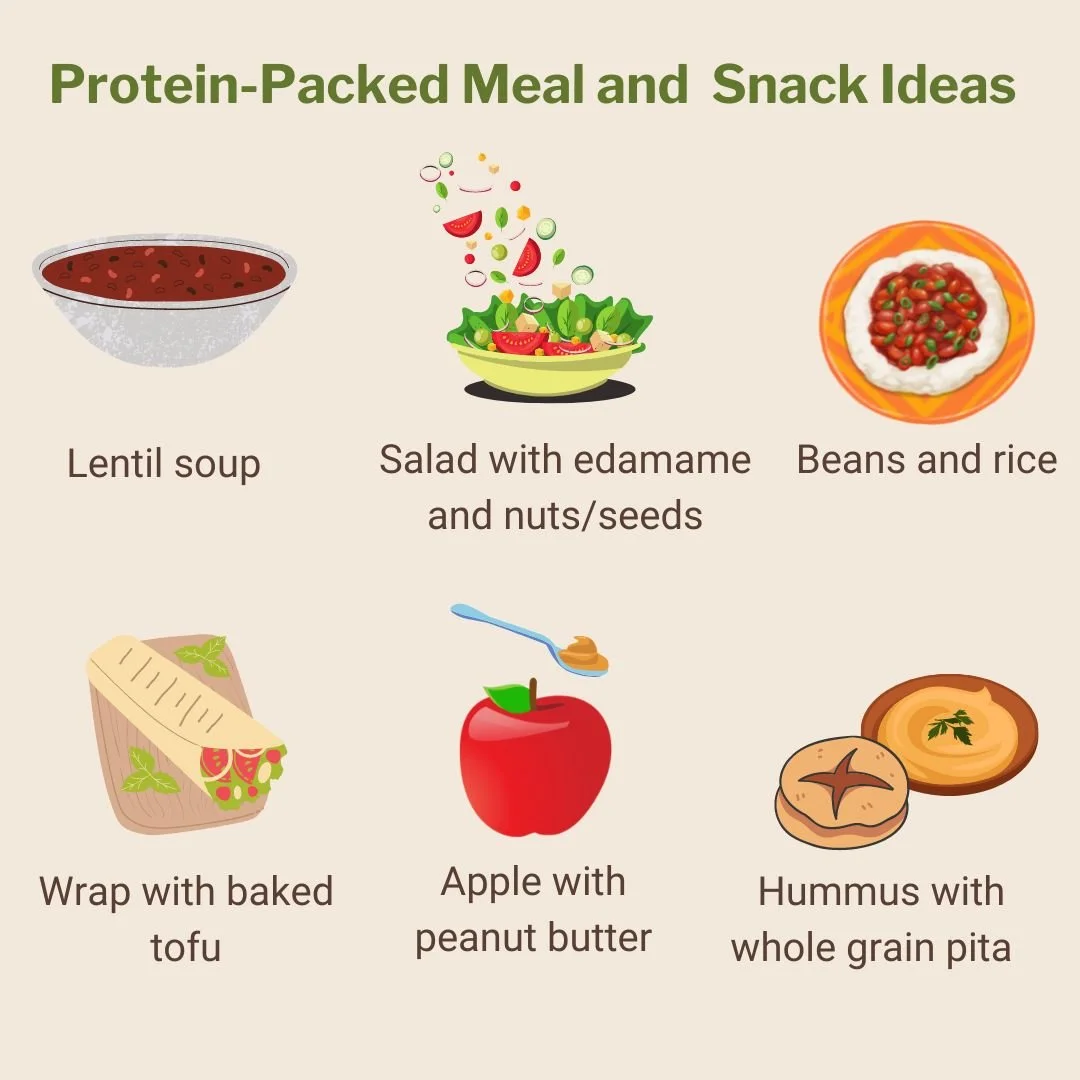Protein 101
A common theme we hear from clients is concern about getting enough protein on a plant-based diet. Protein is a necessary nutrient that our bodies need to function properly. Proteins are made up of building blocks called amino acids, which are used to help build hormones, enzymes, muscle tissues, and important components of the immune system.
The recommended daily allowance (RDA) for protein is 0.8 g/kg of body weight.So, for example, a 150-lb female would need at least 55 g of protein per day based on this calculation. Your needs may be increased if you are elderly, an athlete, pregnant, or healing from something more serious. Many of us get a lot more than this in our average diet. In a plant-based diet, rich sources include soy products like tofu or tempeh, nuts, seeds, legumes, and whole grains (sprouted grains in particular are an abundant source). Even vegetables contain some protein!
Here are some examples of protein content of some common plant based foods:
Chickpeas: 12 grams/cup
Black beans: 15 grams/cup
Tofu: 11 grams per 4 ounces
Quinoa: 9 grams per cup
Lentils: 18 grams per cup
Tempeh: 31 grams per cup
Research has shown health benefits to substituting animal based sources of protein, such as meat and dairy, with plant based sources. Consider the “package” that the protein comes in – whole plant sources tend to also contain other beneficial nutrients such as antioxidants, fiber, and vitamins/minerals, as well as less saturated fat and sodium. You may also find that adding a protein source to your meal helps with satiety as well.
The visual below gives some ideas for easy meals that incorporate these satisfying plant based protein options:
Keep an eye out for more meal ideas, recipes, and info coming up on the blog and social media!

